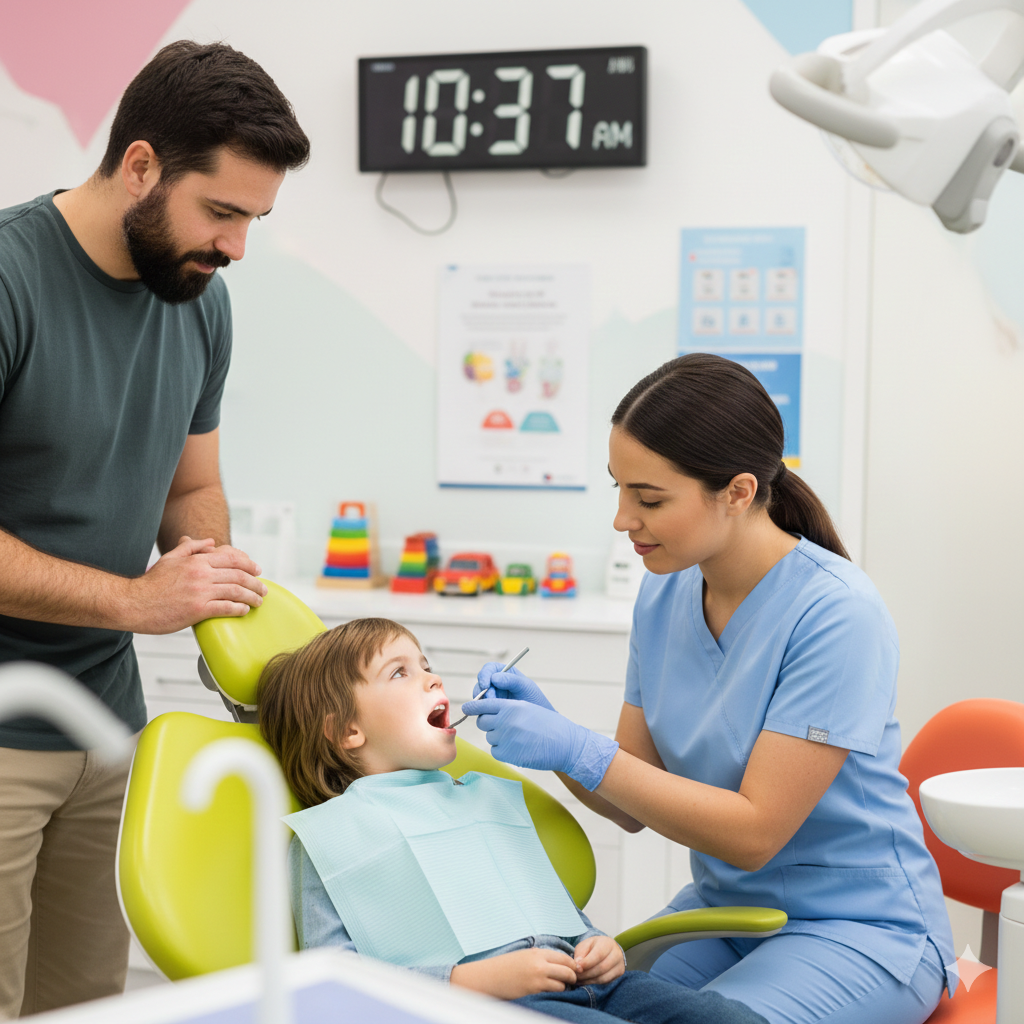The Role of Pediatric Dentists in Your Child’s Development

The Role of Pediatric Dentists in Your Child’s Development
Many parents think of pediatric dentists as professionals who simply clean baby teeth and fill cavities. But in reality, their role goes far beyond that. A pediatric dentist is one of the first healthcare providers to track your child’s growth and development—starting with their very first tooth.
At Tooth + Tongue Dental, we’re proud to partner with families throughout every stage of their child’s oral development. From infancy to adolescence, our goal is to protect your child’s smile—and support their overall health, comfort, and confidence.
Let’s take a closer look at how pediatric dentists play a critical role in your child’s development.
Why Baby Teeth Matter
Although baby teeth eventually fall out, they’re incredibly important for your child’s overall development. They:
🦷 Help with chewing and speech
🦷 Maintain proper spacing for permanent teeth
🦷 Guide jaw and facial development
🦷 Prevent nutrition issues caused by dental pain or decay
Losing baby teeth too early due to cavities or trauma can cause alignment problems, delayed speech, or poor eating habits. Regular dental visits help ensure that your child’s baby teeth stay strong until they’re ready to fall out naturally.
Monitoring Jaw and Facial Growth
Pediatric dentists are trained to spot early signs of developmental concerns that can affect your child’s bite, jaw, or face. During regular checkups, we assess:
- How the jaw is developing
- Whether baby teeth are coming in on time
- Signs of crossbite, overbite, or underbite
- Narrow palates or breathing concerns (often tied to mouth breathing or tongue posture)
When caught early, many of these issues can be corrected with early intervention—such as palatal expanders or pediatric aligners—before they turn into more complex problems.
Supporting Healthy Habits Early On
One of the most powerful parts of pediatric dentistry is prevention. We teach kids and parents:
- How to brush and floss effectively
- The importance of limiting sugary snacks and drinks
- How thumb sucking or pacifier use may affect oral development
- When fluoride or fluoride-free alternatives like hydroxyapatite are appropriate
Our team believes in education through encouragement—not fear or pressure. We create a safe, supportive environment where children feel comfortable learning how to take care of their own health.
A Partner in Every Stage
As your child grows, so do their dental needs. From teething and thumb sucking to sports mouthguards and teen orthodontics, pediatric dentists are with you every step of the way.
At Tooth + Tongue Dental, we also understand that each child is unique. That’s why we tailor our care plans to fit your family’s preferences—whether you want fluoride-free treatments, have sensory concerns, or are navigating a dental emergency. We're here with answers, support, and compassionate care.
When to Start and How Often to Visit
According to the American Academy of Pediatric Dentistry (AAPD), your child should have their first dental visit by age one or within 6 months of their first tooth appearing.
After that, we recommend checkups every six months to keep development on track and prevent potential issues early.
Why Parents Trust Tooth + Tongue Dental
- 💙 Gentle, child-friendly care in a calm and welcoming environment
- 💡 Experienced team trained in both dental care and child development
- 📱 Personalized support, education, and flexible scheduling
- 🦷 Services designed to grow with your child—from cleanings to early orthodontics
- 🌿 Holistic options like hydroxyapatite treatments for families seeking alternatives to fluoride
Ready to Support Your Child’s Smile?
We’re more than just a dental office—we’re a partner in your child’s growth and health.
📞 Call or text +1 (925) 949-8427 to schedule your child’s first appointment or a developmental checkup.
We’re always happy to answer your questions and help you feel confident in your child’s care.





